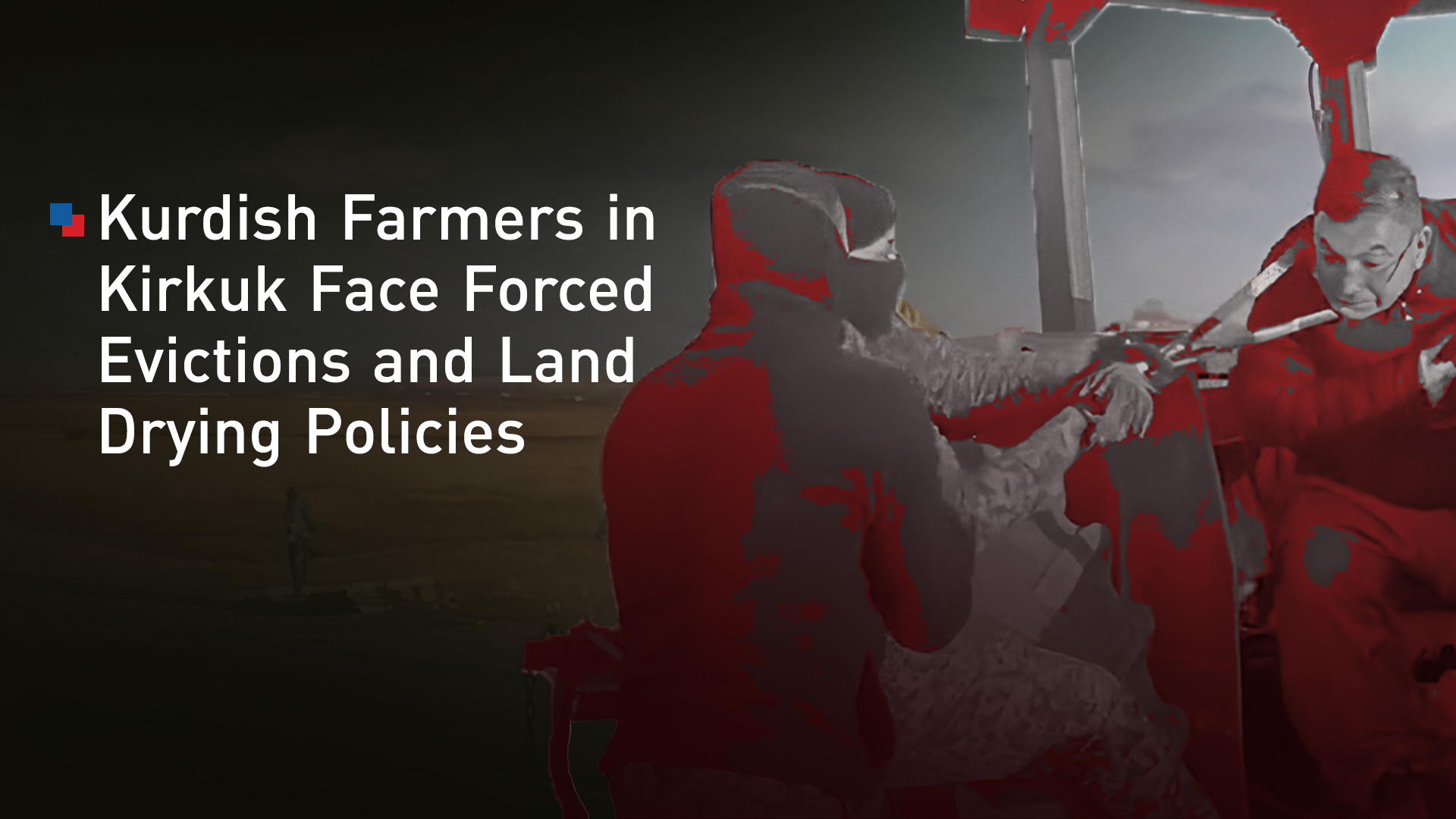Kurdish Farmers in Kirkuk Face Forced Evictions and Land Drying Policies
Kurdish farmers in Kirkuk report systematic harassment through irrigation sabotage, water restrictions, and repeated arrests by Iraqi forces. They describe these measures as a renewed "Arabization" campaign aimed at displacing them from their ancestral lands.

ERBIL (Kurdistan24) – Kurdish farmers in the Kurdistani territories outside the KRG’s administrative control, particularly in Kirkuk, are facing mounting pressure amid growing fears of renewed “Arabization” policies aimed at displacing Kurdish communities and undermining their agricultural presence.
Local farmers say they are subjected to a systematic campaign of harassment, including restrictions on access to water, repeated arrests, and deliberate sabotage of irrigation systems. The situation has left many residents feeling besieged, as they struggle to preserve their livelihoods in the face of what they describe as an orchestrated effort to force them from their ancestral lands.
Footage obtained by Kurdistan24 shows Kurdish farmers attempting to repair damaged irrigation pipes that have been deliberately destroyed multiple times, working in harsh conditions without any official support or protection.
Mohammed, a farmer from the village of Shanagha, told Kurdistan24 that he has been detained four times this year by Iraqi security forces, including the army and police.
“They keep us for two or three days, then release us on bail,” he said. “But the harassment never stops. They want us to give up the land and leave.”
Other farmers described repeated attacks on irrigation systems, the destruction of water sources, and growing restrictions that prevent them from reaching their fields. Many view these acts as part of an organized plan to drive Kurdish farmers away from their lands through attrition and intimidation.
Despite the growing pressures, local residents insist they will not yield. Jouhar Rahman, a farmer from the area, told Kurdistan24:
“Our dignity lies in our land. If you do not defend your land, you have no dignity.”
Another farmer said daily life has become extremely difficult due to persistent security and economic pressures but affirmed that they “will not leave, no matter how harsh the circumstances become.”
The current tensions echo the historical “Arabization” policies implemented under the Ba’ath regime, when thousands of Kurdish and Turkmen families were forcibly displaced from Kirkuk and surrounding areas, replaced by Arab settlers as part of a state-imposed demographic restructuring project.
Observers warn that similar tactics are re-emerging today through administrative and security measures that weaken Kurdish presence in rural areas. They describe the situation as a modern form of demographic engineering—one that relies on bureaucratic and infrastructural constraints instead of open violence.
Many Kurdish political figures continue to emphasize that the only sustainable solution lies in implementing Article 140 of the Iraqi Constitution, which calls for the “normalization of the situation in Kirkuk and disputed territories, followed by a census and a referendum to determine their administrative status.”
Sara Sheikhani, a candidate for the Kurdistan Democratic Party (KDP) in Kirkuk, told Kurdistan24:
“Our electoral program focuses on ending the legacy of the Revolutionary Command Council’s decisions, restoring property to its rightful owners, and implementing Article 140 to ensure justice and end demographic manipulation.”
Residents of the Kurdistani areas outside the Region’s administrative control place cautious hope in the upcoming elections, viewing them as a potential gateway to constitutional justice and the restoration of their rights to land, water, and identity.
As arrests continue and irrigation networks are sabotaged, farmers cling to the belief that this renewed chapter of “Arabization” will eventually close—and that justice will return their land to its legitimate owners.